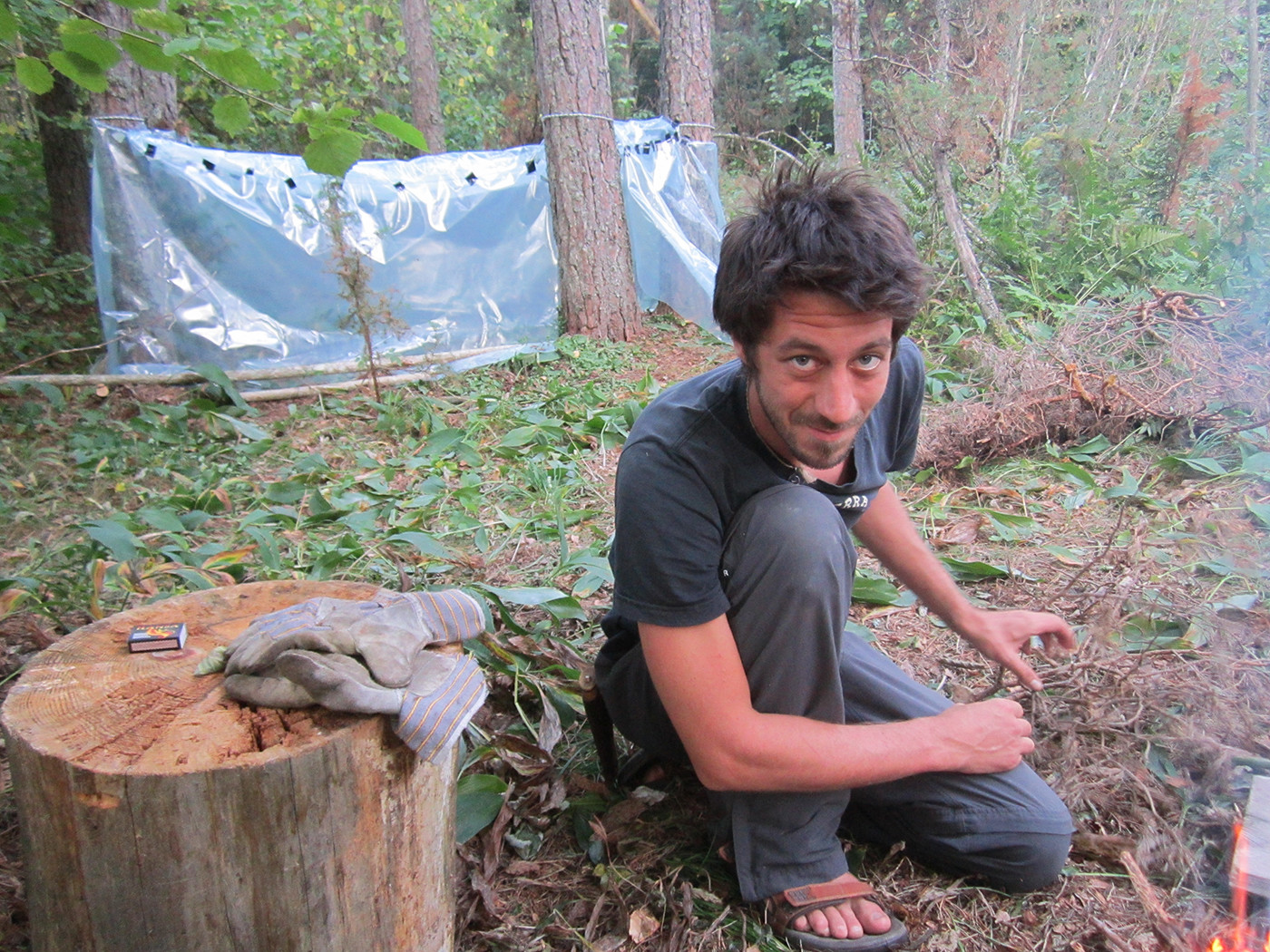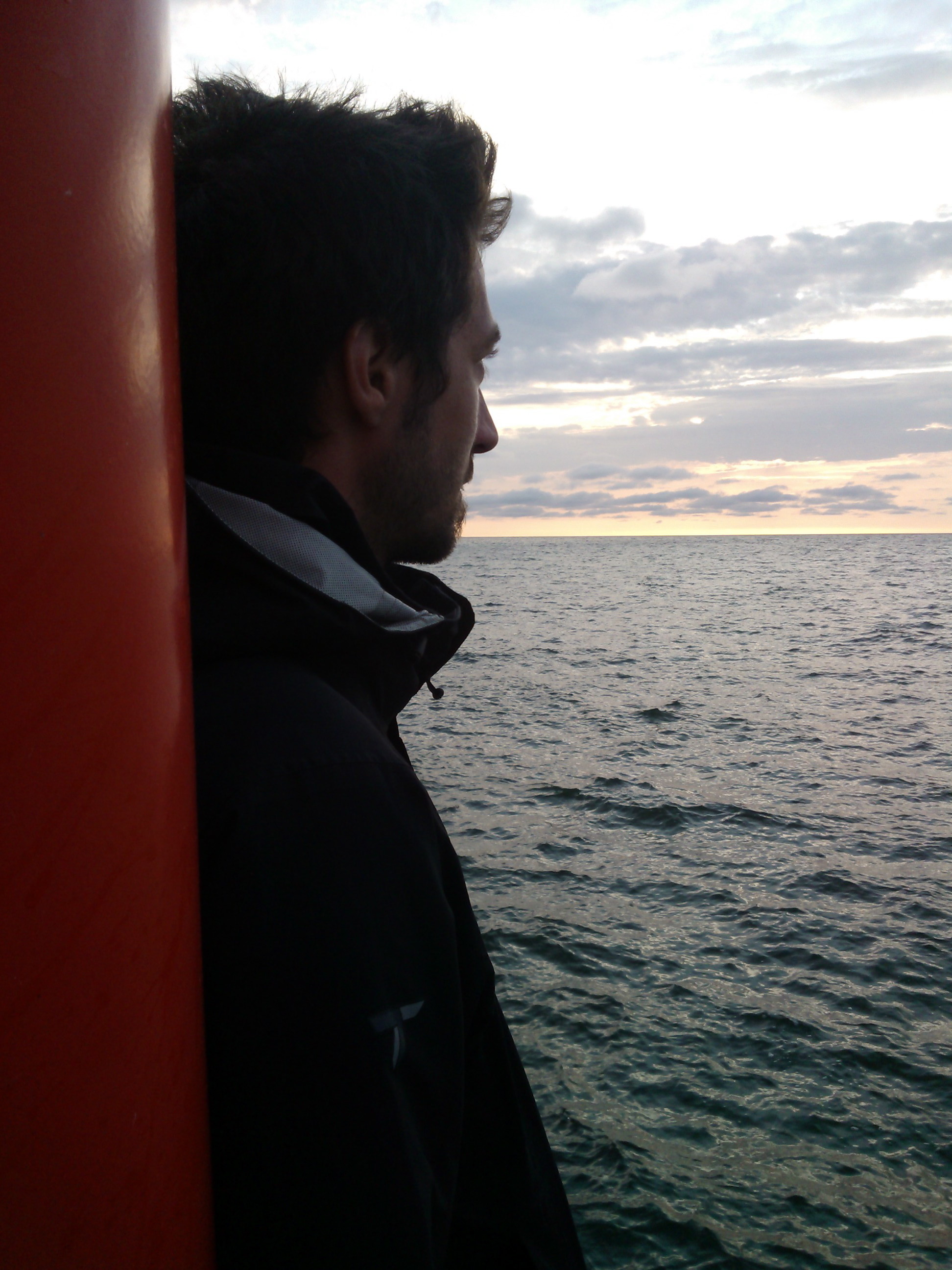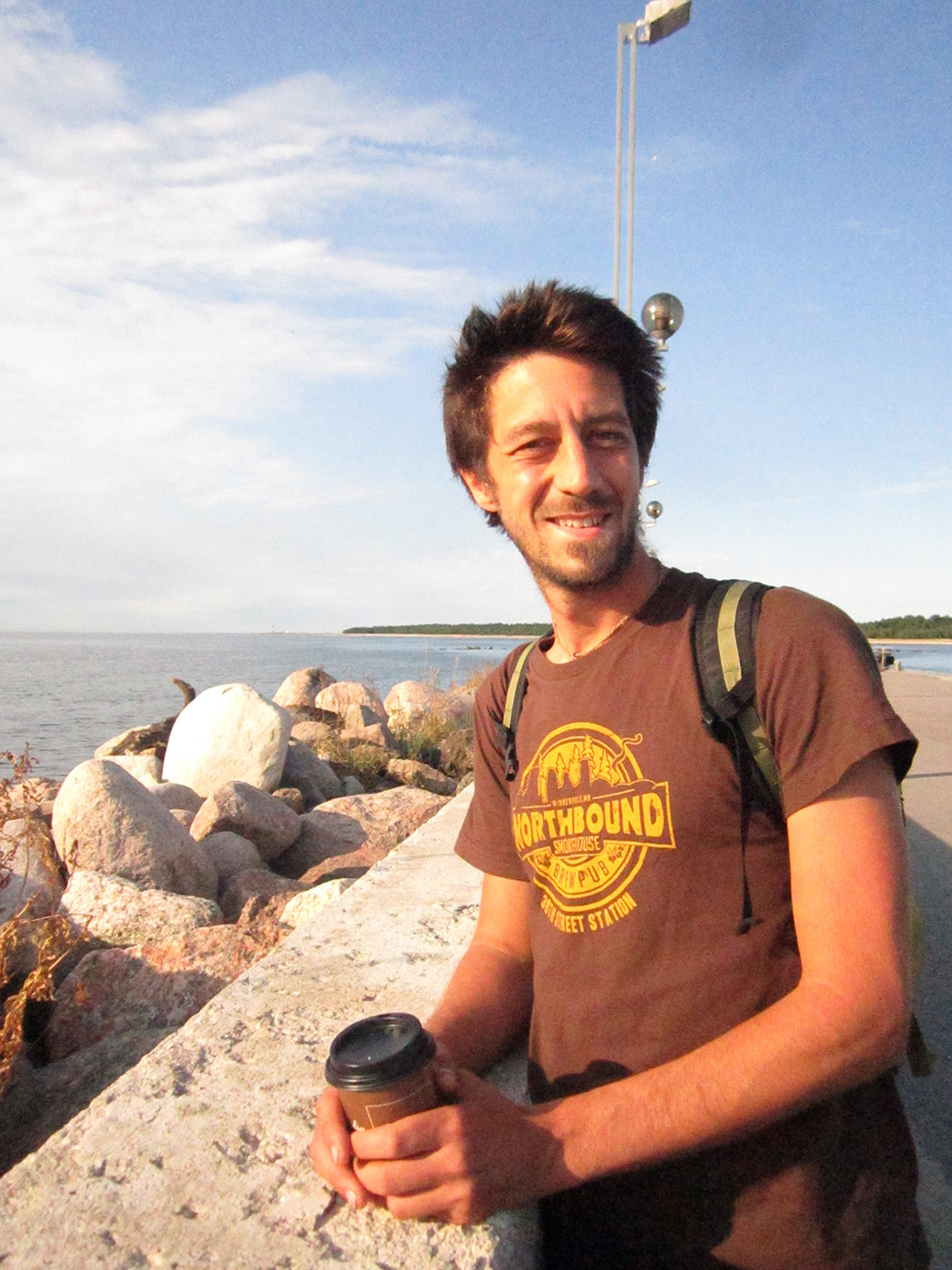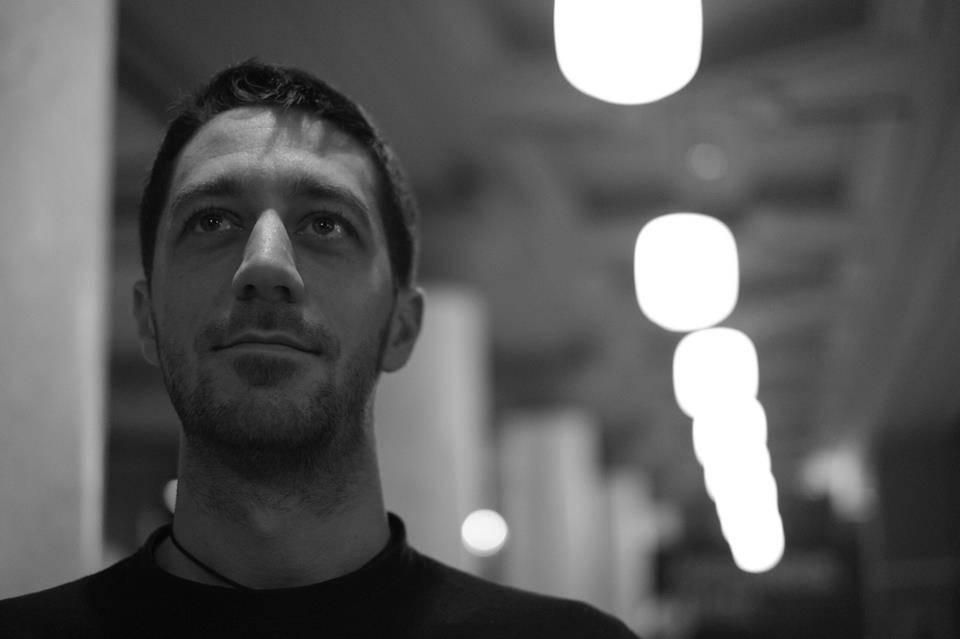How many non-Estonians – especially the ones coming from a global language background – do you know who can speak fluent, or even conversational Estonian? It probably isn’t too easy to come up with even one. Well, let Estonian World fix this and introduce to you Adam Cullen, a 28-year-old Minnesotan who not only speaks and writes Estonian, but also translates prose and poetry from this tiny northern European language into English. His latest translation – Tõnu Õnnepalu’s widely talked about novel, Radio.
Adam grew up in Minneapolis, Minnesota, the US state known for its friendly people and frigid winters, and famous for the classic film (and the more recent TV-series), Fargo. But after having visited Tallinn while studying in St Petersburg, Russia, he fell in love with Estonia and its language: “Something in the lilting, wispy melodies of the Estonian I heard spoken on the street entranced me, was somehow familiar and oddly home-like, and there was no escaping it.”
In Estonia by pure chance
It was a weekend trip to Tallinn from St Petersburg in the rainy and foggy autumn of 2006 that brought Adam to Estonia for the first time – “by pure chance, as these things go,” he recalls. “In a sense, it blind-sided me in the most positive way possible.”
“Maybe the shock of encountering relative normalcy in contrast with life in Russia lobbed me into an altered state of mind, maybe it was destiny, or perhaps it was an odd bottle of Vana Tallinn, tainted with an accidental dose of unsullied Ida-Viru phosphorite – in any case, I can clearly remember standing in front of the window of the Olümpia hotel, looking out over the city (wearing the complimentary bathrobe, holding a stopka of vodka in one hand and zakuski in the other), and saying to my roommate, ‘I feel like I could live here’.”
That same year, Adam returned to Tallinn on his own a few times. “I purchased an Estonian-English dictionary and a couple of newspapers, selected a few albums with Estonian artist names and song titles, and got down to learning it.”

“Yes. Estonian is difficult.”
Adam says it took him close to a year to reach full conversational fluency in Estonian, and a little over that to begin translating simpler texts, “in exchange for money and/or Saku Tume”, a dunkler bock-style beer produced by the Saku brewery. “One of my methods for honing my skills in languages had been translating in my free time and purely to increase my own proficiency, so it was a relatively smooth transition.”
It’s said – mainly by Estonians themselves, but also by others who have tried to learn it – that Estonian is one of the most difficult languages in the world. Adam agrees: “In technical, linguistic terms, sure. Yes. Estonian is difficult. At the same time, gaining fluency in any language that is not your native tongue is a task, as I see it.”
Adam points out that in his opinion, too many members of larger countries never have the need, the opportunity or the will to expand their linguistic – and by that, he also means cultural – horizons. “I really only take a harsher stance towards expats, who live in smaller countries and around smaller languages, where they can get by using the ‘world language’, and who use it as an excuse to forego showing the respect of learning anything apart from ‘tere’ and ‘kaksteist kuud’,” he says. “Tere”, in Estonian, means “hello”. This being a family-friendly publication, we will not explain the word play around the other expression.
To experience what it means to be an immigrant
 Adam moved to Estonia in 2007, right after finishing his undergraduate degree. As it happened, his flight left only a day after his last final exam. “I was working at a café at the time and held a degree in liberal arts – with which you can do anything, and which qualifies you to do very little,” he states. “I figured I could continue working at a café, bury myself in loans and aim to attend graduate school; or, I could relocate to another continent, attempt to find a job, experience what it means to be an immigrant, and see whether it is possible to gain fluency in a language through utter immersion (it is). The choice really wasn’t that difficult in the end.”
Adam moved to Estonia in 2007, right after finishing his undergraduate degree. As it happened, his flight left only a day after his last final exam. “I was working at a café at the time and held a degree in liberal arts – with which you can do anything, and which qualifies you to do very little,” he states. “I figured I could continue working at a café, bury myself in loans and aim to attend graduate school; or, I could relocate to another continent, attempt to find a job, experience what it means to be an immigrant, and see whether it is possible to gain fluency in a language through utter immersion (it is). The choice really wasn’t that difficult in the end.”
Adam’s entrance “into the world of literary translations was all thanks to a chance Christmas party and enough blood sausage and chanterelles”, as he puts it. He had been translating as a volunteer for Fenno-Ugria, an organisation dedicated to spreading knowledge of the Finno-Ugric cultures, and was invited to attend its annual Christmas party. “Also invited to the event were Ilvi Liive and Kerti Tergem from the Estonian Literature Centre, the office of which was in the same building,” Adam recalls. “They soon learned that I dabbled in translation and was interested in broadening that part of my life. Contact information was exchanged, and the rest is the present.”
So far, Radio is the only book he’s translated from Estonian into English that has appeared full-length and in print. “There are several other novels and short stories that I have translated (commissioned by the authors themselves or done out of personal interest) and are available for any interested parties. I have also translated several theatre works, at least one of which is in print, a wide range of poetry, and cultural/Finno-Ugric/architectural/historical texts that are in print. One poetry collection should be published in time for the Baltic States headlining the 2018 London Book Fair.”
“Õnnepalu’s style of writing connects to me”
He admits that one question he is frequently asked is, “Why Estonian literature?” “The English-language market is already gargantuan, and Estonia’s proportional place in the translated-literature market naturally corresponds to the size of its population in comparison with the cultural giants,” Adam explains. “However, Estonians have maintained a ravenous appetite for original Estonian-language books, making it far from difficult to come across works that inarguably deserve translation into the overwhelmingly global English. What remains is just to convince publishers of these works’ potential in a vast market; work that the Estonian Literature Centre has done marvellously.”
So why Radio? The publisher, Dalkey Archive Press, approached Adam about translating the novel, and he was happy to accept the challenge. “Õnnepalu’s permeatingly peaceful and musing, observant style of writing does connect to me on a personal level, and I hope to have the opportunity to translate more of his works in the future,” he says. “I acknowledge that the work can put patience to the test (one review called it ‘plotless’, which I do not agree with and have my own arguments against), the intimate process of translating Radio gave me a much deeper appreciation for its style and Õnnepalu’s writing overall.”
Learning the Sami language
While the Estonian language has only about 1.3 million native speakers worldwide, another language Adam is learning has even less – about 20,000. That other language is Sami, spoken by the people in the northernmost parts of Finland, Sweden and Norway. “Similarly to Estonia and Estonian, it just felt right,” Adam explains his interest. “Call it intuition, something deeper in the soul or in blood (I have my suspicions concerning the Swedish side of my heritage); call it an unbridled fascination. It is what it is, and to tell the truth, I haven’t really felt the need to question it. Most of my choices in life have admittedly been based more off of feeling than much else.”
Adam concedes that his grasp of the Sami language is still in its infancy, and hence he’s not translating any works from Sami. But he has also learned Russian – a far larger language than Estonian or Sami – and has translated some texts from it to English. “Unfortunately, I have little time for anything more presently.” Nevertheless, the Russian language is something that intrigues Adam – “because of hazy recollections and awarenesses of the Cold War, the scant direct brushes I had had with Russian culture itself, and the mystification that is Cyrillic. The right instructor and escapades in Ukraine and Russia sealed the deal.”
 Learning other languages is, as Adam puts it, intimate for him, and not a hobby. “When you really acquire a language, you consciously and subconsciously adopt and meld into yourself inherent pieces of the culture,” he explains. “The outcome is a fluid and ever-expanding identity; something much more considerable than a mere means of communication. I strive to pick up the basics for getting around in a local language when I am travelling or staying short times in another country, but as for speaking, I really only find it humanly possible to focus on a few special ones to the extent I find respectable.”
Learning other languages is, as Adam puts it, intimate for him, and not a hobby. “When you really acquire a language, you consciously and subconsciously adopt and meld into yourself inherent pieces of the culture,” he explains. “The outcome is a fluid and ever-expanding identity; something much more considerable than a mere means of communication. I strive to pick up the basics for getting around in a local language when I am travelling or staying short times in another country, but as for speaking, I really only find it humanly possible to focus on a few special ones to the extent I find respectable.”
Translating poetry in rhyme is futile
Adam translates prose and poetry alike, and says they’re entirely different to translate: “The nuances embedded within not only the combination of words and the rhythm, but also the slight tones given by particular and peculiar conjugations, make translating it a lengthy process,” he says of translating poetry.
“As a colleague of mine put it: every translation of a poem is merely the latest draft – days, even years later, a fresh look at the text will draw new dimensions and interpretations to the surface; poetry changes in tandem with the reader.”
Adam does occasionally translate poems in rhyme, but as he admits, “doing so is somewhat a futile endeavour. Brilliant translations that preserve and reformulate both the rhyme and the meaning can certainly be done, but other times, so much of the original dissipates and the end project is so utterly original in and of itself that it is more an inspiration of the first, not a translation of it. Poetry often celebrates and revels in the original language; its harmony can be solely dependent upon it.”
At the moment, Adam is working on yet another translation of a novel – the latest by Mihkel Mutt, titled The Cavemen Go Down in History (in Estonian, Kooparahvas läheb ajalukku). He has also signed contracts for a collection of short stories, as well as a poetry anthology. “Naturally, I also have my eye on a number of other works that interest me!”
“It’s not impossible to encounter warm friendliness in Estonians”
Coming back to Adam’s life in Estonia, one question that comes to mind is, how easy or hard is it for a man from the American Midwest – one of the friendliest places in the whole wide world – to get used to the somewhat cold, sometimes even unfriendly attitude of Estonians? “Settling into life in Estonia and Estonian life means confronting some stark differences,” Adam grants, adding that “‘Minnesota nice’ is an incontestable fact”. “However, it is not impossible to encounter warm friendliness in Estonians, especially among those who are more travelled.”
“One main obstacle to this remains the manner in which many Estonians seem to develop their circle of friends – in my experience, many ‘complete’ the process after they make their pinginaabrid (grade-school ‘bench-mates’), and check it off their list of things to do in life,” he explains. “This is especially aggravating for a newcomer to the country (as I’ve experienced it both in Tallinn and small-town Estonia), especially when proficiency in Estonian is not an issue. Paradoxically, it is almost harder to make close friends when you do know the language.”

On the language front, however, Adam believes native-speaking Estonians should be harder on foreigners and foreign spouses to at least progress to the point of basic communication. “A culture is only worth the value its holder places upon it. It does take effort on both sides, that of the native and of the newcomer.”
Estonia needs “a sprinkling of ‘Minnesota nice’”
Adam also adds he doesn’t believe foreigners in Estonia should be more accommodated than they already are. “Far too many new establishments bear English-language names, far too many signs and advertisements do the same. It bleaches away the experience of being abroad from your homeland, of travelling an essentially foreign country – if anything, foreigners should be more flexible and open to taking in the incredible culture and language of the land they are visiting.”
But, “a little sprinkling of ‘Minnesota nice’ in Eesti would not be the worst thing. A deep care for community (which is indeed growing in certain neighbourhoods) and being pleasant by default would be welcomed.”
And what could Minnesotans learn from Estonians? “Minnesotans could pick up a bit of Estonians’ appreciation and reverence for nature; their penchant for ‘returning to the wild’ (although we Minnesotans certainly take full advantage of our lakes and the North Woods, Arctic weather permitting) and especially the no-nonsense, DIY attitude.”
I
Cover photo by Jacques-Alain Finkeltroc.


I lived in Tallinn and studied Estonian in 1998-1999. I think Adam Cullen and I should become friends. It seems that we share some rare, yet similar interests. In fact, if I had it to do all over again, I’d do it pretty much just like this guy.
Dear friends
Situation at the East of Ukraine is getting more and more complicated. Number of refugees from Donetsk and Lugansk regions searching for shelter in other regions is increasing. These people left their flats, cars, clothes and money and escaped to other regions. The government of Ukraine doesn’t do much to help them. Most of support is provided by NGOs and charity organizations.
Our organization “Lugansk Regional Charitable Foundation “Teenager” and our partners from Vinniky city (Lviv region) made a refugee camp. 200 refugees from Mariupol, Lugansk and Donetsk live in this camp. We provide them free place to live and food. Most of them are children and women. We also provide help to refugees in other cities of Lviv region. But our resources are getting more and more limited.
We are financing food and shelter for refugees but our money will soon be over.
In attached document you can find project and budget for emergency financing.
Please consider emergency financing of this project. Its total budget is 10 000 Euro. But even 10 Euro would be great help for us.
We hope for your help
Best regards
Sergey Popov
Deputy Managing refugee camp, Head of board Luhansk regional Charitable Foundation “Teenager”
+380661846349
teenagerfund@yandex.ru
http://www.gofundme.com/ft4j3o
http://teenagerfund.org.ua/English/index_camp_for_refugees.html
Publications about us—
http://euromaidanpress.com/2014/10/20/protestants-persecuted-in-rebel-held-luhansk/
Been to Esartonia. Great place. cold people